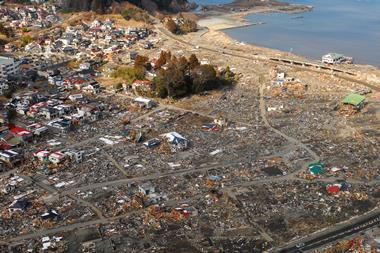Risk of serious environmental damage in Danube
The unfolding environmental disaster in Hungary, following an industrial accident that leaked toxic sludge into the river Danube, should serve as a warning about the strength of new environmental liability laws, said Aon.
The Environmental Liability Directive (ELD) “leaves no place to hide”, according to Aon Risk Solutions.
Simon Johnson, Aon Risk Solutions’ environmental director for the UK, Europe, Middle East and Africa, commented: “While most companies are good corporate citizens and take risk management with regards to the environment extremely seriously, occasionally accidents or incidents beyond anyone’s control can happen. Under the ELD, which has some extremely strong teeth, it is entirely possible that an accident such as the tragedy in Hungary could ultimately lead to the total collapse of the company at fault if they do not have suitable insurance coverage in place.
“In this instance, there is a serious threat to the environment and for contamination including the Danube, which could lead to serious environmental damage in other countries. If the company responsible for the original damage were to collapse, it is not unimaginable to imagine a scenario in which one country seeks another to pay for the subsequent costs of cleanup. Current estimates are that it will take at least a year and tens of millions of Euros.
“It is absolutely vital that companies are explicitly aware of the risks their operations pose and the financial exposure they face should something go wrong, no matter how remote the possibility. When working with our clients we advise them to take a comprehensive environmental insurance programme. There is a mature insurance market for these types of risks, and it is entirely possible to get insurance coverage for up to €150 million for an individual risk. It is worth being aware that when buying insurance, this doesn’t simply pay for the financial compensation you will receive, but also gives you access to experienced professionals who can advise the best way to mitigate damage. Without insurance, dealing with the aftermath of a disaster is completely down to the resources already within a company, something many firms simply will not be prepared to cope with.”



















